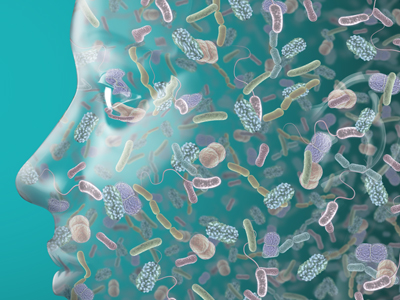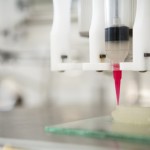 Metagenomics is a field of research which uses genomic data from a large number of organisms in an ecosystem to attempt to characterise the ecosystem holistically. This technique has only recently been possible with the advent of high throughput sequencing. Metagenomics is particularly good for investigating life which can’t be readily grown/cultured in a lab – which is a surprisingly large amount of the microbial world. One particular part of the microbial world, our own bodies, is being investigated in the Human Microbiome Project.
Metagenomics is a field of research which uses genomic data from a large number of organisms in an ecosystem to attempt to characterise the ecosystem holistically. This technique has only recently been possible with the advent of high throughput sequencing. Metagenomics is particularly good for investigating life which can’t be readily grown/cultured in a lab – which is a surprisingly large amount of the microbial world. One particular part of the microbial world, our own bodies, is being investigated in the Human Microbiome Project.
The New York Times has posted an article on recent breakthroughs in the project. In this article they detail some of the astounding information coming out of the project. While the public has a perception of bacteria as bad “invading” organisms which ideally shouldn’t be a part of the body – this view is being shown to be quite wrong. “Bad” bacteria make up only a very small proportion of bacteria in the body in general – with the majority being beneficial (potentially essential) to the entire human. Some “bad” bacteria have even been found to be living quite peacefully alongside the others.
Another article, this time from Ryan McBride of FierceBiotech – talks about how this project is actually a huge boon to entrepreneurs, who are founding companies to drill into the data generated by the project. We have a huge amount of data and no where near enough analysis to properly utilise it. These startup companies will be panning the data for those rare gold nuggets which make the next tech breakthrough.
The project also raises questions about how we see ourselves as organisms. We are fundamentally and deeply symbiotic with all manner of bacteria. “Humans are like coral, an assemblage of life-forms living together”, describes Dr. David Relman. Or as Dr. Barnett Kramer puts it, “Humans in some sense are made mostly of microbes. From the standpoint of our microbiome, we may just serve as packaging”. I would however disagree on a point with Dr. Kramer – “we” are not packaging – for the bacteria are in fact “ourselves”. A city is not a city without its people, only collectively are we a functioning human.















